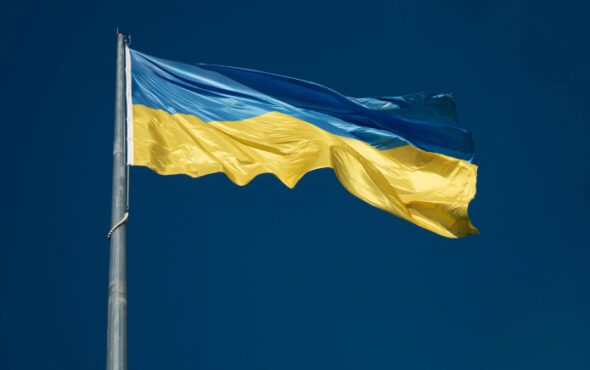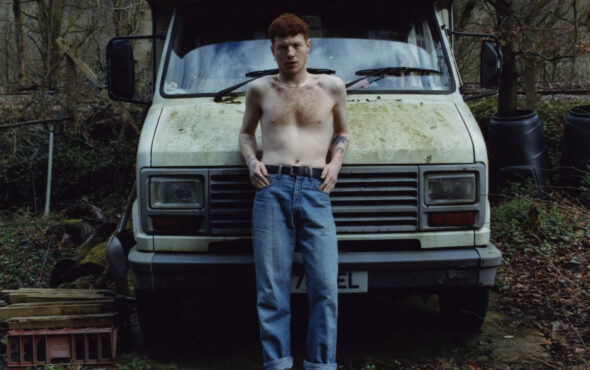
As missiles pounded Ukraine’s capital on Friday, LGBTQ+ rights campaigner Olena Shevchenko said the prospect of Russian occupation had terrified the community, with many joining an exodus from Kyiv.
While Ukrainian LGBTQ+ activists often encounter abuse and harassment from far-right sectors, Russia’s lesbian, gay, bisexual and transgender community has faced growing persecution since the Kremlin adopted a gay “propaganda” law in 2013.
“It will not be possible (for LGBTQ+ people) to stay, especially if it is a long occupation,” Shevchenko, chairperson of LGBTQ+ rights organisation Insight, told the Thomson Reuters Foundation in a WhatsApp call from Kyiv.
As Moscow’s invasion of Ukraine entered a second day, she said she could hear explosions every 15-20 minutes from her home in the city.
Gay sex is legal in Russia, but the state has often threatened LGBTQ+ organisations with closure.
The 2013 law banned the dissemination of “propaganda on non-traditional sexual relations” among Russians under the age of 18. President Vladimir Putin billed it as part of a drive to defend “traditional values”.
On Thursday, Putin unleashed the biggest attack on a European state since World War Two, shocking the world and prompting tens of thousands of people to flee their homes.
Many people have sought refuge in the west of the country, away from the increased fighting reported in the eastern contested regions and around Kyiv.
Tymur Levchuk, co-founder of LGBTQ+ rights organisation Fulcrum, arrived from the capital in the western city of Lviv, close to the Polish border, early on Friday with his family.
“A lot of LGBTQ+ people are trying to leave Kyiv now for here or Odessa (in the south) and other regions,” Levchuk said in a WhatsApp call.
“(LGBTQ+) people felt unsafe before, but now they have a much higher level of feeling unsafe.”
Ukraine legalised gay sex in 1991, but conservative elements in the mainly Orthodox Christian nation often speak out against rights for LGBTQ+ people, and members of the far-right regularly target groups and events linked to the community.
Prior to the Russian assault, foreign news organisations quoted unnamed U.S. officials as saying Russia could try to stifle dissent after an invasion by targeting critics including journalists and activists, including LGBTQ+ people.
Both Shevchenko and Levchuk said they feared they could be targeted.
Kyiv’s mayor said Russia’s assault on the capital had already begun, with saboteurs in the city, as the inhabitants fled to bomb shelters in the face of continuing missile bombardments.
Ukrainian President Volodymyr Zelenskiy pleaded with the international community to do more, saying sanctions announced so far were not enough.
Andrii Kravchuk from the Nash Mir Center, which monitors anti-LGBTQ+ violence in Ukraine, said he and his partner were thinking of leaving the capital.
“My boyfriend and I already have the experience of living under shelling, and we know what will happen next,” Kravchuk said by email.
“It is difficult to withstand constant tension and listen to every sound outside the window.”
Reporting by Hugo Greenhalgh; Editing by Helen Popper.
GAY TIMES and Openly/Thomson Reuters Foundation are working together to deliver leading LGBTQ+ news to a global audience.



